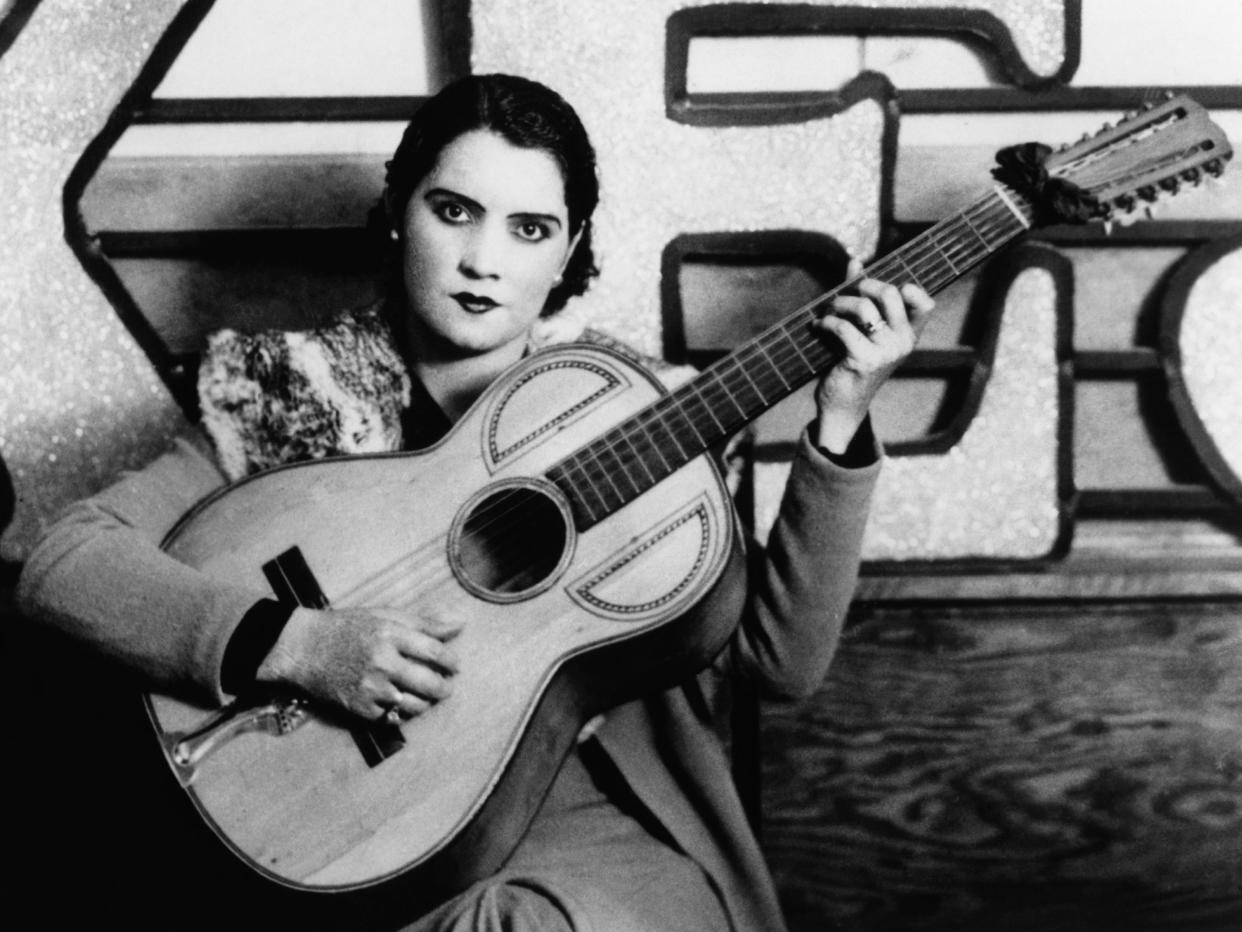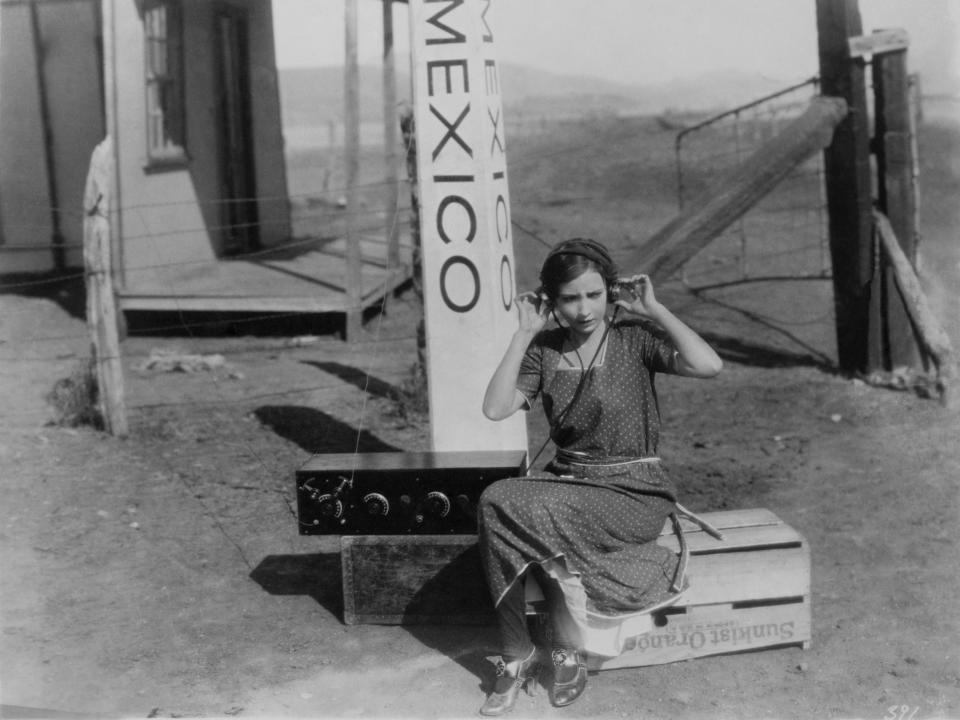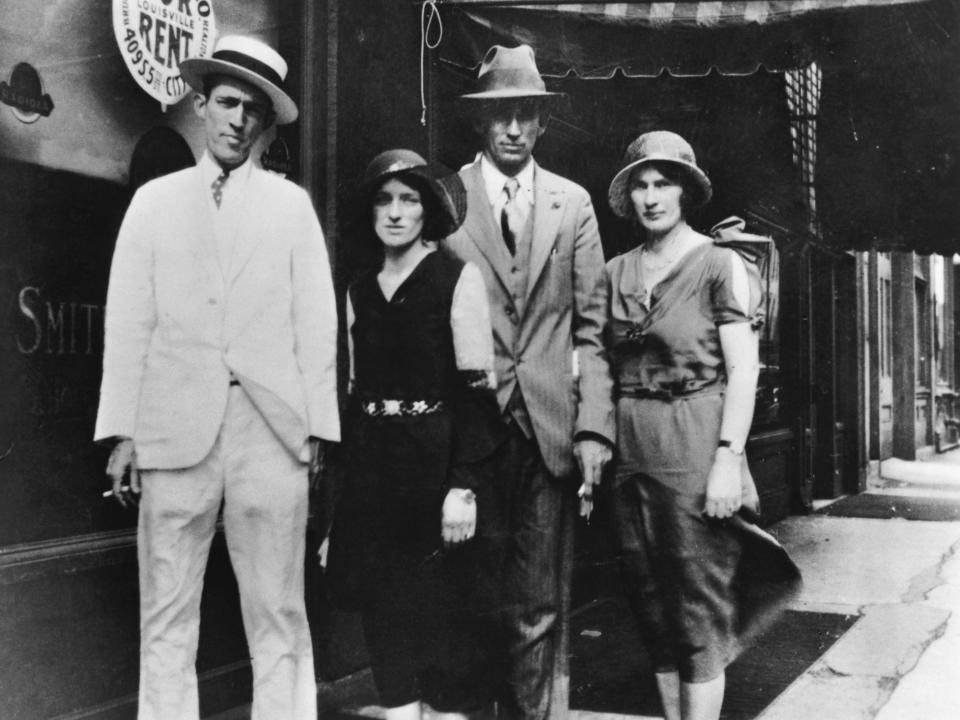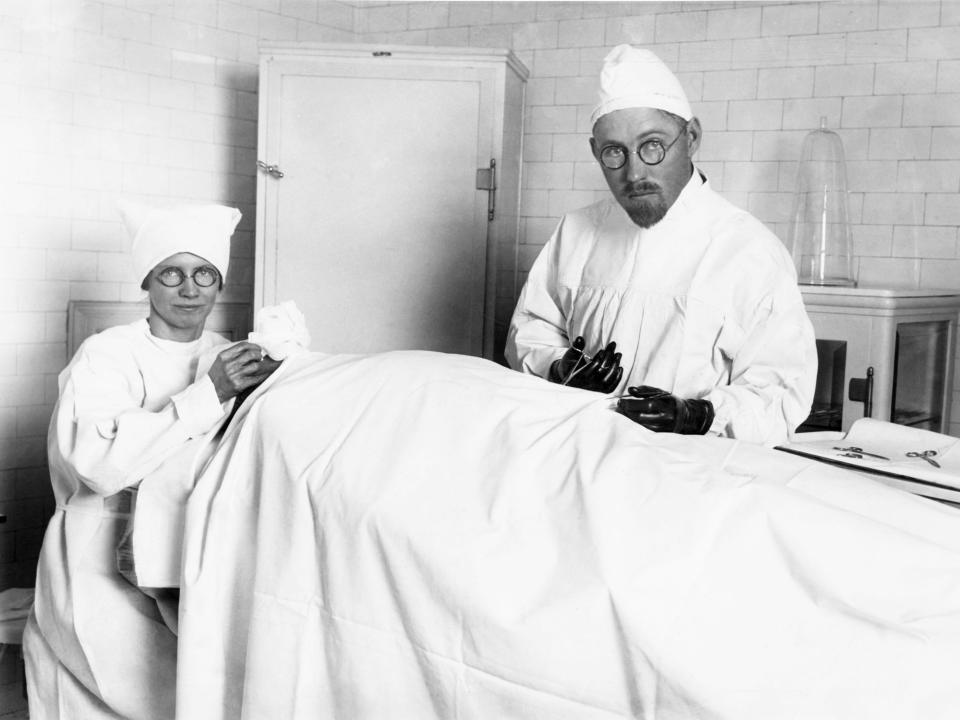How unregulated radio stations out of Mexico fueled the country music boom in America

'Border radio' refers to the unregulated American radio industry in Mexico in the 1930s to 1980s.
The radio stations helped popularize cross-border country music in both America and Mexico.
Bands like ZZ Top and The Fabulous Thunderbirds have paid homage to border radio in their songs.
When country music emerged in the American South and West in the 1910s and 20s, it began to take a hold of the imaginations of the working class. But the genre, referred then by the derogatory label "hillbilly music," wasn't deemed commercially viable by many record label executives — until broadcast radio began airing programs dedicated to the music.
While programs at small radio stations like Nashville's "Grand Ole Opry" and Chicago's "National Barn Dance" helped popularize country music, underground broadcasts from stations in Mexico also played a crucial role in the growth of the genre.
Known as "border radio," the unregulated American radio industry sprung up on Mexico's northern border in the 1930s. At the time, Canada and the United States had divided the long-range radio frequencies between themselves, leaving Mexico out of the deal.
Enterprising broadcasters who were denied licenses to broadcast in the US turned to high-powered Mexican radio transmitters instead. These transmitters were dubbed "border blasters" for their powerful 50,000-to-500,000-watt signals — so powerful that some listeners claimed they could hear broadcasts even without a radio, instead picking up the signals on barbed wire, bedsprings, or dental work, according to Bill Crawford, coauthor of "Border Radio: Quacks, Yodelers, Pitchmen, Psychics, and Other Amazing Broadcasters of the American Airwaves."

Border radio brought country music, as well as music from Black and brown communities, to a wider audience in both the US and Mexico.
"Border radio was how many people in the US heard Mexican music, and many youngsters were introduced to Black rhythm, blues, and rock and roll through it," Crawford told Business Insider. "It was an early loudspeaker for voices that weren't heard on normal US media."
Country singers and charlatans
The first border radio station, XED, was launched in 1930 in the Mexican state of Tamaulipas. The station, owned by Houston theater owner and philanthropist Will Horwitz, occasionally hosted performances by Horwitz's friend Jimmie Rodgers, who is hailed as "The Father of Country Music."

In the years that followed, other border radio stations sprung up in Mexico. They gained a reputation for their unconventional commercials, which they wove into their country music programming. Often, listeners heard popular country songs interspersed with ads for cure-all miracle potions and even "autographed" photos of Jesus Christ, Crawford said.
"There were only three things that would sell on the border, and that was health, sex, and religion," Dallas Turner, an announcer and advertising pitchman on Mexican border radios, said in an interview with Perfect Sound Forever.
Another prominent figure in border radio was John Romulus Brinkley, a doctor who promoted goat gland transplants for male virility on KFKB, the first radio station in Kansas he'd founded. The Kansas State Medical Board revoked his medical license in 1930, and the Federal Radio Commission refused to renew his broadcasting license. In 1931, he started his own border radio station in Mexico to entice his listeners to visit his clinic.
Brinkley eventually filed for bankruptcy and died broke, but his commercial success through his border radio station "made corporations start to take notice of the power of the radio," according to Pope Brock, who wrote a book about Brinkley.

The flourishing of country music
The popularity of border radios led to an explosion of country music throughout the 1930s to 1980s.
American radio culture at the time was controlled by the highly educated in New York, so typically didn't air the music that most Americans really wanted to listen to, according to Crawford.
The voices of country singers like the Carter Family, Patsy Montana, and Slim Rinehart made their way to houses on both sides of the US-Mexico border, influencing future musicians. Country greats Johnny Cash and Waylon Jennings said they grew up listening to the Carter Family on border broadcasts. Hank Thompson, another country music star who grew up in Waco in the 30s, said border radio stations were the only stations where one could listen to country music most of the time.
Border radio also introduced Mexican and Mexican-American artists like Lydia Mendoza, whose nickname was "The Meadowlark of the Border," and Rosa Dominguez to a larger audience.
"The highlight of the [XER] program, for me, was the beautiful voice of the 'Mexican Nightingale,' especially when she would sing 'Estrellita' — this farm boy thought that must be how the angels would sound in heaven," a South Dakota listener recalled of hearing Dominguez on the radio in 1995.

Musicians drew cross-cultural inspirations from the music they heard on the border radio. While living on the border, Maybelle Carter's guitar playing styles and innovations — widely credited as forming the foundations of American country music — were shaped by Mexican guitar playing styles, NPR reported.
The legacy of border radios
The border radio era effectively came to an end in 1986 when the US and Mexico brokered an international broadcasting agreement that allowed Mexican and American broadcasters to use each other's radio frequencies. The deal was a crippling blow to border stations, whose signals would be drowned out by local broadcasts.
But the legacy of border radio stations continued to live on in the country music they helped popularize, as well as its cousin genres. Blues band The Fabulous Thunderbirds and the rock bands The Blasters and ZZ Top were heavily influenced by border radio, and have paid homage to the underground stations through songs like "Heard It On the X" — a reference to the border radio programs, which all began with the letter "X" — and "Border Radio."
According to American honky-tonk star Webb Pierce, country music "might not have survived if it hadn't been for border radio."
Border radio not only gave listeners the ability to listen to broadcasts outside the mainstream, but also laid the groundwork for future evolutions of music, advertising, and politicking, Crawford said.
"There are so many echoes of border radio in our internet world today," Crawford said. "It's also romantic and fun because all of these radio stations began with the mysterious letter 'X.'"
Read the original article on Business Insider


